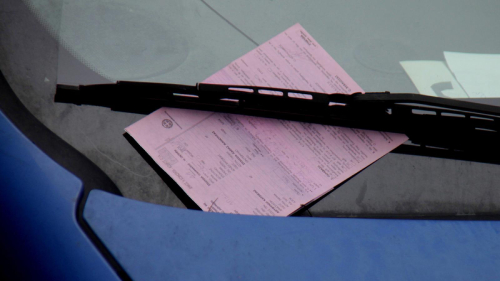
First time renting a car: 9 tips to follow
You’ve booked the flight, packed your bags, and planned the itinerary—but now you’re staring at a screen full of rental car options, feeling a bit lost. Sound familiar? Don’t worry—we’ve got you covered! In this guide, we’ll walk you through essential, real-world tips to make your first car rental experience smooth, stress-free, and enjoyable. Whether you’re exploring the stunning landscapes of Greece or renting a car on our sun-kissed island of Crete, these expert insights will help you avoid common pitfalls and make the most of your rental!
Table of contents:
- 1. Define your needs and choose the perfect rental car!
- 2. Find the best rental deals-Compare prices & avoid hidden fees
- 3. Choose a reputable rental company - Not just the cheapest one!
- 4. Read the fine print and avoid nasty surprises
- 5. Channel your inner detective and spot every scratch before you drive
- 6. No surprises at drop off - Understanding the return process is key!
- 7. Drive smart and master the local traffic rules
- 8. Be smart about parking - Avoid fines and frustration
- 9. Save that number! Keep the rental company’s contact info handy
- Hit the road without worries!
1. Define your needs and choose the perfect rental car!
The rental car you are going to choose is more than just a set of wheels! Choosing the right one can make or break your trip. Ask yourself:
- City driving or rugged roads? Compact cars are great for city parking, while SUVs handle mountain roads better.
- Solo traveler or full house? If it’s just you, a small sedan might be best. If you’ve got the whole crew, consider a spacious van.
- Fuel efficiency matters. Gas prices aren’t getting cheaper—so a hybrid or economy car could save you money.
- Special features? Need GPS, Bluetooth, or extra trunk space? Check the specs before you book.
Once you've answered these questions, choosing the right car becomes effortless!
2. Find the best rental deals-Compare prices & avoid hidden fees
You wouldn’t book the first hotel you see without checking a few options, right? The same goes for rental cars. Have a little patience and a sharp eye for details. Prices fluctuate based on demand, location, and even the time of booking, so here’s how to spot the best deal:
- Start with direct searches. Visit rental company websites, enter your travel dates, and note the base prices.
- Check different locations. Renting from the airport is often pricier due to additional fees. Check if a nearby city location offers a better rate.
- Look at the total cost. A low daily rate may not be the best deal if hidden fees add up. Pay attention to:
- Extra driver fees
- Young driver surcharges
- One-way rental fees (if you’re returning the car to a different location)
- Fuel policies (prepaid fuel is often overpriced)
- Book in advance. Prices tend to rise the closer you get to your rental date, so locking in a deal early can save you money.
- Watch for seasonal fluctuations. Rates can be higher during peak travel seasons, so if your dates are flexible, adjusting your trip by a few days could lower your cost.
- Compare similar packages. Some rental companies offer perks like free additional drivers, included insurance, or unlimited mileage. Weigh these extras against the price to determine the best value.
By carefully reviewing offers and understanding where costs can creep in, you’ll be able to confidently book the best rental deal without any surprises.
3. Choose a reputable rental company - Not just the cheapest one!
Not all rental companies play fair. Dig deeper before you book:
- Check Google and TripAdvisor reviews—if a company has a pattern of complaints about surprise charges or bad service, run the other way.
- Look for transparency in pricing. If something seems too cheap, there’s often a catch.
- Instead of choosing large chain rental companies with rigid policies, well-reviewed local providers are often the safest choice, as they offer personalized service and clear pricing without the corporate red tape.
Did you know? Motor Plan has an outstanding 4.9/5-star rating on Google Reviews, making it one of the top-rated rental providers!

4. Read the fine print and avoid nasty surprises
Rental agreements contain small details that, if overlooked, can cost you. Before signing anything, carefully review the rental terms to catch any extra fees, restrictions, or insurance traps. If everything looks good, you can confidently sign the deal you’ve chosen!
Be careful! Some rental companies have strict cancellation rules or charge high security deposits, so it’s best to clarify these in advance. A little careful reading now can prevent unexpected headaches later.
5. Channel your inner detective and spot every scratch before you drive
Before you drive off, take a careful look around the car. Check for any visible scratches or dents and snap a few photos for reference. Additionally, a quick peek inside will ensure everything is in place and can save you from potential disputes later. If you notice anything unusual, report it before leaving.
This is crucial because any unnoticed damage could be blamed on you upon return, potentially leading to unexpected charges.
6. No surprises at drop off - Understanding the return process is key!
Returning the car should be straightforward, but only if you follow a few golden rules:
Make sure to return the car on time—late returns can result in extra charges that add up quickly. If your rental agreement requires a full tank upon return, refuel before dropping off the car and keep the receipt as proof, as some companies might charge premium rates for missing fuel. Before handing over the keys, do a quick final check, taking photos to document the car’s condition and ensure you aren’t blamed for any unnoticed issues.
7. Drive smart and master the local traffic rules
Driving in a new country isn’t just about getting from A to B—it’s about understanding the local road culture. Some places have strict speed limits with hidden cameras, while others enforce unique rules, like requiring headlights at all times. You might also encounter unexpected driving habits, such as aggressive lane merging or different right-of-way norms.
Before hitting the road, familiarize yourself with local traffic laws, toll systems, and road signs in order to be prepared and drive with confidence.
8. Be smart about parking - Avoid fines and frustration
Be mindful of parking regulations, especially in tourist-heavy areas where fines and towing can be common. Look for clear signs indicating parking restrictions. Whenever possible, opt for secure overnight parking to keep your rental safe from break-ins or unexpected fines. Using apps like Parkopedia can help you find the safest and most affordable parking spots, reducing the risk of expensive mistakes.
If you need more details about parking regulations, check out our guide on parking rules in Greece.

Source: https://www.carandmotor.gr/
9. Save that number! Keep the rental company’s contact info handy
No one plans for an emergency, but if something goes wrong, you’ll be glad you were prepared. Save these numbers in your phone:
- The rental company’s emergency hotline
- Roadside assistance (some credit cards provide this for free!)
- Local emergency services (112 in Europe, 911 in the U.S., etc.)
If you get into an accident, take photos, get a police report if necessary, and contact the rental company immediately.
The most important emergency numbers in Greece:
| Emergency Service | Phone Number |
|---|---|
| General Emergency (EU-wide) | 112 |
| Police | 100 |
| Ambulance (EKAV) | 166 |
| Fire Department | 199 |
| Coast Guard (for sea emergencies) | 108 |
| Tourist Police (for visitor assistance) | 1571 |
| Roadside Assistance (ELPA) | 10400 |
Bonus Info: Dial 112 for any emergency—this connects you to all services and is available in multiple languages!
Hit the road without worries!
Renting a car for the first time doesn’t have to be stressful—it’s all about knowing what to expect and making informed choices. With the right preparation, you’ll be free to explore, take spontaneous detours, and enjoy your trip without unnecessary worries.
If your next adventure takes you to the island of Crete, why not make it effortless? Motor Plan offers top-rated service, transparent pricing, and a smooth rental experience from start to finish.
